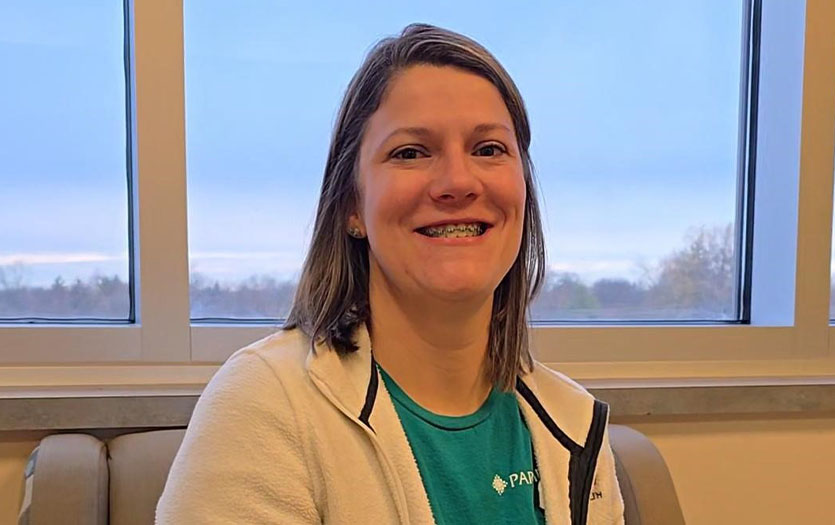
Enjoy this monthly mindfulness post from Dave Johnson, PhD, CNS-BC, LMFT, Employee Assistance Specialist.
“Be patient…and try to love the questions themselves. Live the questions now. Perhaps you will then gradually, without noticing it, live along some distant day into the answer.” -Rainer Maria Rilke
Several years ago, a close friend of mine, who was leading an organization for the important work of child abuse and neglect, recounted a story. She told of a five-year-old child whose mother had abandoned him suddenly and unexpectedly. When the mother returned several months later, she had a new husband and baby. The little boy came up with a chore list of 75 items he would do each day to keep his mom happy and at home.
As I wrote these words today, I teared up and noticed within my body a deep wound for that child and the many others who have moved me throughout my career. I paused to reflect on all children who fear separation from a parent and know that at its core this must be one of the most frightening of experiences. I never had to worry about my mother leaving. I never had to worry about being separated from her. Having children and grandchildren, I know that kids are resilient, but the stuff of life is daunting and so I reflect on one framework called Appreciative Inquiry (AI) that I have used both in my clinical therapy practice as well as with organizations seeking resiliency.
AI was pioneered in the 1980s at Case Western Reserve University by professors David Cooperrider and Suresh Srivastva. It is a strengths-based model to bring about collaboration, and has been used in many countries, organizations and therapy practices. It assumes all people, organizations and systems have something that works right – things that give it life and vitality. It begins by identifying this positive core and connects it in ways that animate energy within oneself, families, teams or communities. Innovative solutions replace problems as one shifts toward noticing the positive core.
Mindfulness meditation at its core, pairs intentional sensory awareness (what do I see, hear, touch, smell, taste, and feel in this present moment) with the cultivation of curiosity, compassion and non-judgment. Reactivity within our bodies as they move through the fight, flee or freeze response can be tamed and soothed just a bit with mindfulness. Individuals, families, work teams and cultures that have embraced mindfulness have seen the benefits of stress reduction and the calming that comes from being present to one’s life versus ruminating in a mind of worry, fear or suffering.
As I ponder Appreciative Inquiry and mindfulness, a few suggestions come to mind:
- Appreciative. That for which we have gratitude and value. What we interpret as the ideal. Who is the role model (the saint, hero, mentor, coach, teacher) who embeds this ideal for you? The language might be inexact. I can write or tell you what the ideal is, but when I see it in action, I can mirror it. This process of mirroring is speculated to be associated with mirror neurons within our brain and critical to the formation of attributes such as empathy and goodness.
As a parent, teacher, or leader, one knows intuitively that actions speak louder than words. Intentional pausing (mindfully) to notice the goodness within systems (work, families, children/employees/students, etc.) primes the pump to build the goodness within this system. Looking at the faults and failures of systems and people provides a negative vortex. As humans, we have the capacity to override our tendency to look for warts and find the good, the better and best in all. Finding role models is essential.
- Inquiry. We tend to find what we are looking for and so the asking of good questions helps us to find the ideal and positive core. One of my favorite books is called “Encyclopedia of positive questions” by Diana Whitney et al. Even the notion of helping one to ponder the reality that good questions exist helps one to think about how the brain operates and challenges the notion that there is no such thing as a bad question. A bad question can shut down innovation, problem solving and creativity. It can focus the attention on the faults of a system or person. Good questions help us to multiply opportunities, visions and possibilities of a better reality. Asking good questions is not easy nor Pollyannaish.
Mindfully pausing to ask what the good questions are to help one see with a wider-angle lens improves vision for all. In this pause, I can notice questions that are posited by others that incite fear, greed, confusion or stir the pot in a non-helpful way. I could ponder a bad question such as, “What will the xxx (child, employee, student) do wrong today?” I can also choose and mentor and coach others to ask helpful questions such as, “How can I bring out the best in my xxx (myself, children, team, family, community, etc.)?”
- Mindfulness. Becoming a non-reactive fly on the wall to notice what is happening within one’s body and world takes practice. Our human tendency is to react and overthink. Joining a yoga, tai chi, qi bong, meditation, prayer, or mindfulness training program is of great benefit for parents, leaders and a world that seems to be a bit reactive.
Knowing the benefits of mindfulness meditation is a great first step and building the mindful muscle takes practice. With mindful meditation practice, one can begin to have increasing awareness of when, where and how the brain problem solves, is being hijacked or simply reacts to fear, danger, shame, etc. Over reactivity within us can cause illness and impulsive reactivity between us can cause us to abuse ourselves, others, our precious families and world.
- Storytelling. Storytellers are perhaps the most powerful people in the world. Stories have been used by world leaders and parents to build the bridge of hope, compassion and love, as well as walls of fear, hate and mistrust. Where do you listen to stories? Do they activate within you joy, kindness and compassion, or fear, hate and mistrust? Listen deeply to the storyteller. Are they motivated to sell you an ideology, manipulate, or control you? Or perhaps the storyteller sparks you to do goodness or inspires you to be kind and compassionate to yourself or others.
Be mindful of the influence of the storyteller. AI is intentional use of storytelling to influence individuals, families and communities to rally around ideal values and then collaborate to build this into the fabric of the culture (school, work, home, etc.). For example, I can ask a family to pause and come to a therapy session to share a story of a time when they felt safe, respected, loved, nurtured, listened to or cared about. I can have members of a work team share a peak team experience story when they rallied during a challenging situation, and felt energized, proud and effective. Getting others to mindfully pause and reflect on what has worked in the past by sharing an actual story has energetic potential for infusing hope in the future. Collaborating around these ideas is transformational.
- Headtalk. Rumination or monkey mind is pervasive in our culture, and is often expressed in language such as, “I can’t shut my mind off,” or “My thoughts are keeping me awake during the night”. Worry, confusion and anxiety are the common cold of mental health issues.
Sometimes this inner head talk is so intrusive that medications are needed to help individuals cope and sleep. As a nurse therapist, I help folks identify what stories they tell themselves. Sometimes the narrative is derogatory and self-deprecative. Mindfulness helps to tame the monkey mind, but when it is paired with other therapy such as cognitive behavioral therapy, one can begin to shift the inner voice to be a bit more loving and kind.
One wise person told me that each of us has an animal within (kindness or ego centeredness). Each one grows to the degree of the story you feed it. Who can help you identify patterns or change your inner dialogue? Perhaps it’s a teacher, minister, counselor or friend. Perhaps a journal or writing group would help to connect the pattern and healing or destructive nature of your inner dialogue.
I’ve spent more than 40 years listening to the stories of life events and stressors that folks entrusted to me. No one goes into counseling or therapy because life is great, and they just wanted to stop by and share. In each of these sessions, I held my cup of coffee closely and tried to listen deeply to stories of life that took my breath away. I tried to mentor, pause and hope.
Often, I fail in my personal life, but I come to know some important truths along the way. Good questions move life in positive directions and bad questions stir the pot. Good stories inspire hope, forgiveness, love, gratitude, collaboration and truth, and bad stories divide sides and create confusion. And finally, mindfulness meditation is a powerful antidote that parents, families, leaders and communities need more now than ever for finding goodness within self and others.
Other resources
For a free 1:1 in person or phone consultation with Dr. Dave or to find out about more on Mindfulness & Stress Management programs, contact the Parkview Center for Healthy Living at (260) 672-6500. Dr. Dave also provides on-site guidance for teambuilding and transformational leadership, among other topics. To learn more about Employee Assistance Programs for your company, call Business Development at 260-373-9013. Mindfulness-based stress reduction (MBSR) practice has been extensively researched and proven helpful for coping with stress and change, grief, healthy eating patterns, pain, anxiety, depression and many other chronic disease and autoimmune disorders.
Whitney, D. et al. (2014). Encyclopedia of positive questions: Using appreciative inquiry to bring out the best in your organization. 2nd ed. Euclid, OH: Lakeshore Communications.
Follow Integrate Mindfulness on Facebook, for posting of mindfulness and healing exercises from Dr. Dave.



